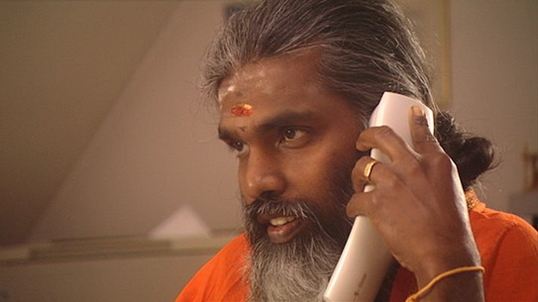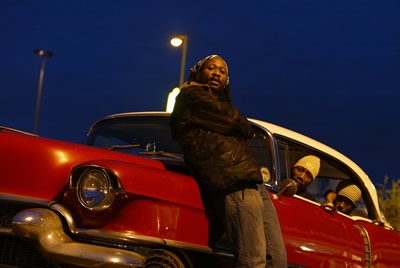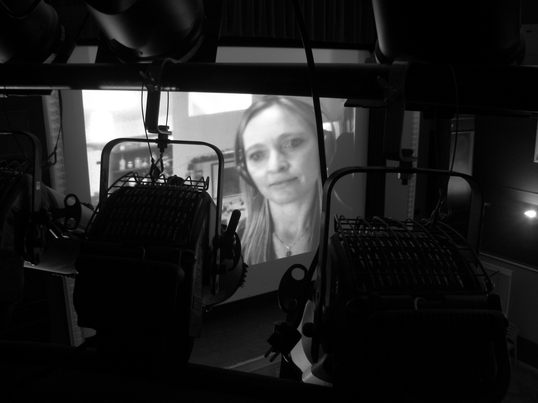Fire, people and life April 03, 2011
Germans live in Germany, Hindus in India, Estonians in Estonia, and Rastafarians in the West Indies. That is how things have always been, and many think that this is how things should stay as well. If every nation has its own country and they stay there, all should be well. Governments would have better control over every citizen, everything is in order and no one would need to learn foreign languages.
A pretty scary image, I would say. For quite a number of different reasons, the world is not organised in such a manner, and has never been, really, although the machines of mythology have tried to incite ethnic groups all over the world to believe in these ‘ancient national epics’. People, and whole communities, travel around, move from one place to another, and not everyone wants to assimilate and exchange their customs and values for a full package of whole new ones. This is often seen as a negative aspect for the foreign group, and perhaps even taken as an assault: “Go back to where you came from, if you don't want to live like us!” Yet the keepers of our own culture in foreign countries are seen as national heroes (e.g. Estonian folklorist ensembles and Estonian churches in the United States versus Moslems wearing hijab and building mosques in Europe).
This year's Worldfilm offered quite a bouquet of films relating the stories of people or groups of people building their lives in a totally new cultural context. Reasons for which they find themselves in that context may be very different, like love, for a Ukranian folk musician Ruslan living in Estonia, or an earthquake, for Lyndon and other Rastafarians who moved from Montserrat island to London, or political instability, as for Sri Paskaran and other tamils who came from Sri Lanka to Germany.
The most surprising images
were offered by Melanie Liebheit's film Reborn in Westfalen, which
was also an aesthetic success in many ways. One man's endless energy
has allowed the Tamils to build a glorious Hindu temple in a small
German town, and to organise a great Hindu festival, which fills this
small town once a year with thousands of Hindus from Germany,
Belgium, France and elsewhere. In front of our very eyes, the
prejudices of a local German gentleman melt away as he sees over the
years that the foreigners from the South don't do anything criminal,
but rather add excitement to the town's life, and by the way, always
clean up after themselves. Angela Merkel can say what she may about
“the failure of multiculturalism”, but this film is a very
positive example of how different cultures can function actively side
by side in the same community and even support each other.

Sri Paskaran, a Hindu priest, is feeling himself at home in the German bureaucracy
In the film “Fire Burn Babylon”, Sarita Siegel tells a personal story that would probably make all the professors of nationalism faint: Sarita, a blond Western woman living in London, falls in love with a Rastafarian who was evacuated to London due to a natural disaster on his home island in the Carribean sea. Sarita has a baby with him, and eventually they split up, but in this very frank she relates the life of her man, and of his Rastafarian friends, thus leading us into the Rastafari culture. It is one thing to read about relationships for the Rastafarians and listen to their macho mentality in reggae-song lyrics, but completely another to see how a woman slowly discovers cultural differences and learns to live with them. In this complicated personal story, Sarita manages to understand, explain and mediate Rastafarian culture. She makes a great effort to give her son every possibility to participate in his father's world, as much as this blond-curly-haired dark-skinned boy ever wishes to.

Rastafarians in London
Yet more interesting aspect of the film was a glimpse into Rastafarian philosophy, which becomes certainly more clear thanks to the link between the two environments: the greenness of the Carribean island and the concrete jungle of London. No one has the money to send them back to their mythical homeland in Ethiopia, and so they stay in this cold country of Elizabeth. City life presents a great challenge to the peace and love vibes of Rastafarians, and quite a few of them go astray. Nonetheless, they do manage to find a bright side in this new life, and so the rasta parties and reggae music become their sunny weapon to fight against this cold Babylon. It is true that there are now a few more bad boys in London, but there are also more colours and more joy in the city, because, surprisingly, differences are enriching indeed. One of the best films in the festival, surely, that touched a multilayered world so different from ours in Estonia.
Sarita Siegel on Skype, answering viewers' questions
The other film from the same session on Friday evening, “Holy Fire”, went well together with the London story. Not only because of the hot Esto-Ukrainian band Svjata Vatra (which means 'holy fire' in Ukranian) but also because of its content: from the lush green lands of Ukraine, a charismatic young man called Ruslan once came to Estonia, married an Estonian woman and made her compatriots jump and rejoice and sing to the rhythms of Ukrainian songs. Though the film doesn’t try to get very deeply into the subject, which is perhaps a pity, being a rather quick and happy road movie of the band's visit to Ruslan's homeland, it does paint a portrait of a father and family man whom every Estonian mother would wish for her daughter as a groom. Perfect integration, as Ruslan himself says in the film, smiling. It is good that there are such joyful new films in Estonia, and a sunny boy like Ruslan certainly deserves acknowledgement in the form of a film.
Mele Pesti
